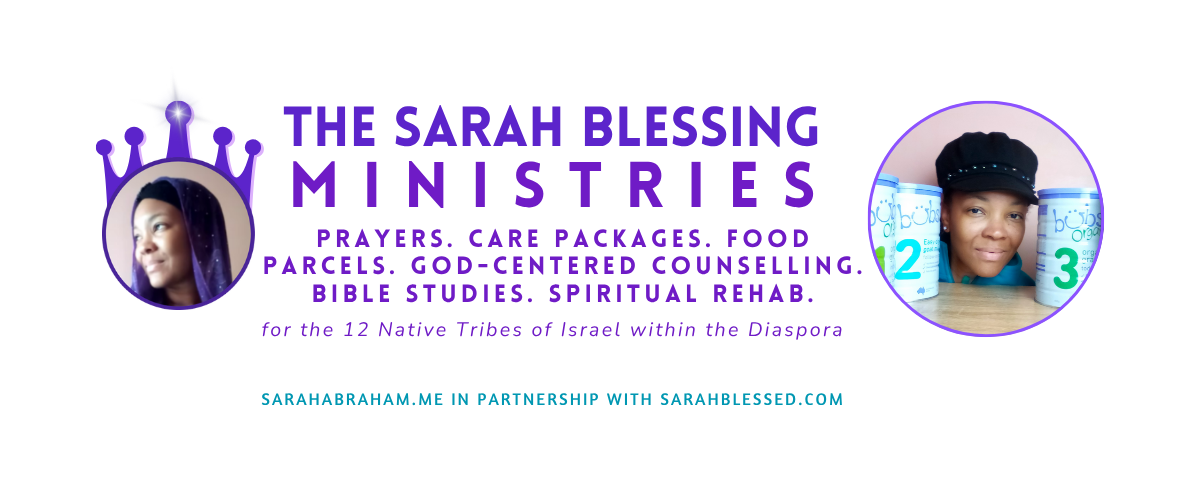
BIBLICAL HIGH HOLY DAYS
We are to come out of the ways of the world and to serve only the Most High God of Israel. That means walking away from all of the world’s so called, “public hellidays” and pagan traditions.
We (Hebrews, Jews, Israelites, Chosen Ones) have our own heritage and culture that was given to us by our Holy God. These are holidays that God’s people (Blacks, Natives, Islanders and Latinos) are commanded to celebrate and honor the Lord, on specific dates and times, during each year — and throughout all of our generations — forever.
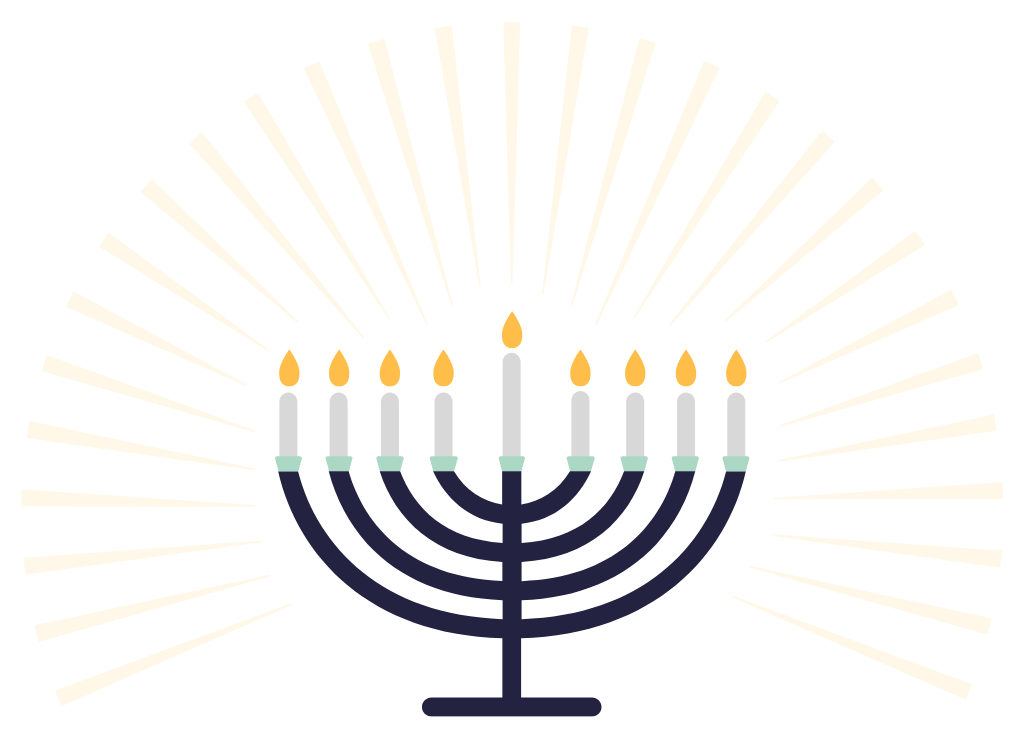
SABBATH HIGH HOLY DAY
The Sabbath (rest from all work every Saturday – starting from sunset on Friday night to sunset on Saturday night). This is a commandment from the Most High God. Every Saturday is the Lord’s day of rest (not on Sundays ~ contrary to popular belief).
As soon as it becomes dark on Friday night, the Lord’s Sabbath begins. It lasts for 24 hours until Saturday night at sunset. And during this time we are to dedicate this day to God.

Things you can do on the Sabbath: Worship the Lord, praise Him, sing to Him, dance unto the Lord, play music that glorifies God, read your bible, rest at home and be in serious mediation and prayer unto God.
We are only permitted to leave home, on a Sabbath, if we are going to a worship service to keep the Sabbath with other Hebrews.
- no working
- no buying, no selling (no shopping)
- no cooking (no heating food nor drinks)
- stay home (or be in a place of worship with other believers keeping the Sabbath)
“And on the seventh day God ended his work which he had made; and he rested on the seventh day from all his work which he had made.
And God blessed the seventh day, and sanctified it: because that in it he had rested from all his work which God created and made.” (Genesis 2:2-3)
*Always remember that the Sabbath supersedes all other days and High Holy Days. We cannot cook or warm up any type of food or drink on the Sabbath, no work, no buying and no selling.
The only Sabbath Day we are allowed to can cook is on the Passover (and that is only to roast the lamb over fire — otherwise we can never cook on a Sabbath Day).
If a New Moon falls on a Sabbath Day (from Friday night to Saturday night), then we cannot cook during that New Moon when it falls on a Sabbath).*
“Thou shalt not bow down thyself to them, nor serve them: for I the LORD thy God am a jealous God, visiting the iniquity of the fathers upon the children unto the third and fourth generation of them that hate me; And shewing mercy unto thousands of them that love me, and keep my commandments. Thou shalt not take the name of the LORD thy God in vain; for the LORD will not hold him guiltless that taketh his name in vain. Remember the sabbath day, to keep it holy.
Six days shalt thou labour, and do all thy work: But the seventh day is the sabbath of the LORD thy God: in it thou shalt not do any work, thou, nor thy son, nor thy daughter, thy manservant, nor thy maidservant, nor thy cattle, nor thy stranger that is within thy gates: For in six days the LORD made heaven and earth, the sea, and all that in them is, and rested the seventh day: wherefore the LORD blessed the sabbath day, and hallowed it.” (Exodus 20:5-11)
NEW MOON HIGH HOLY DAY
New Moon (observed as a Sabbath except that we can cook when the New Moon falls on any other day than a Friday night — because every Friday evening is a Sabbath of rest).
There is only one New Moon every month. Each New Moon marks the beginning of a new month (according to the bible — not the traditional worldly calendar).
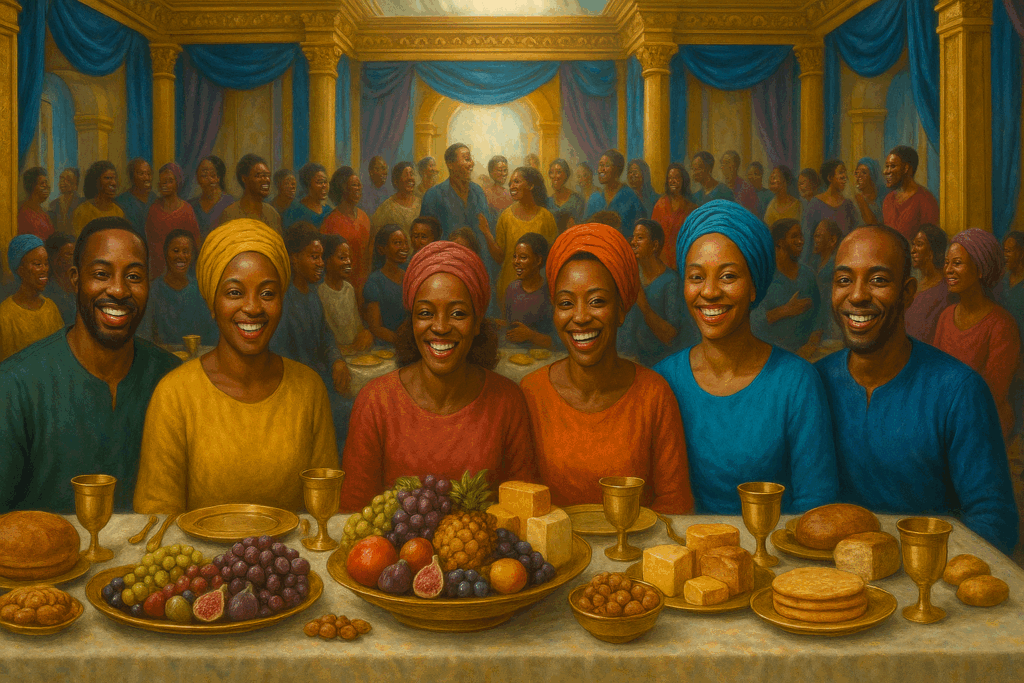
*Always remember that the Sabbath supersedes all other days and High Holy Days. We cannot cook or warm up any type of food or drink on the Sabbath, no work, no buying and no selling.
The only Sabbath Day we can cook is on the Passover (and that is only to roast the lamb over fire — otherwise we can never cook on a Sabbath Day).
If a New Moon falls on a Sabbath Day (from Friday night to Saturday night) then we cannot cook during that New Moon when it falls on a Sabbath).*
“And they shall bring all your brethren for an offering unto the LORD out of all nations upon horses, and in chariots, and in litters, and upon mules, and upon swift beasts, to my holy mountain Jerusalem, saith the LORD, as the children of Israel bring an offering in a clean vessel into the house of the LORD.
And I will also take of them for priests and for Levites, saith the LORD. For as the new heavens and the new earth, which I will make, shall remain before me, saith the LORD, so shall your seed and your name remain. And it shall come to pass, that from one new moon to another, and from one sabbath to another, shall all flesh come to worship before me, saith the LORD.” (Isaiah 66:20-23)
PASSOVER HIGH HOLY DAY
Passover (a feast day where we eat fire-roasted lamb, unleavened bread and bitter herbs to honor the Lord’s deliverance of the Israelites (our ancestors) from Egyptian captivity.
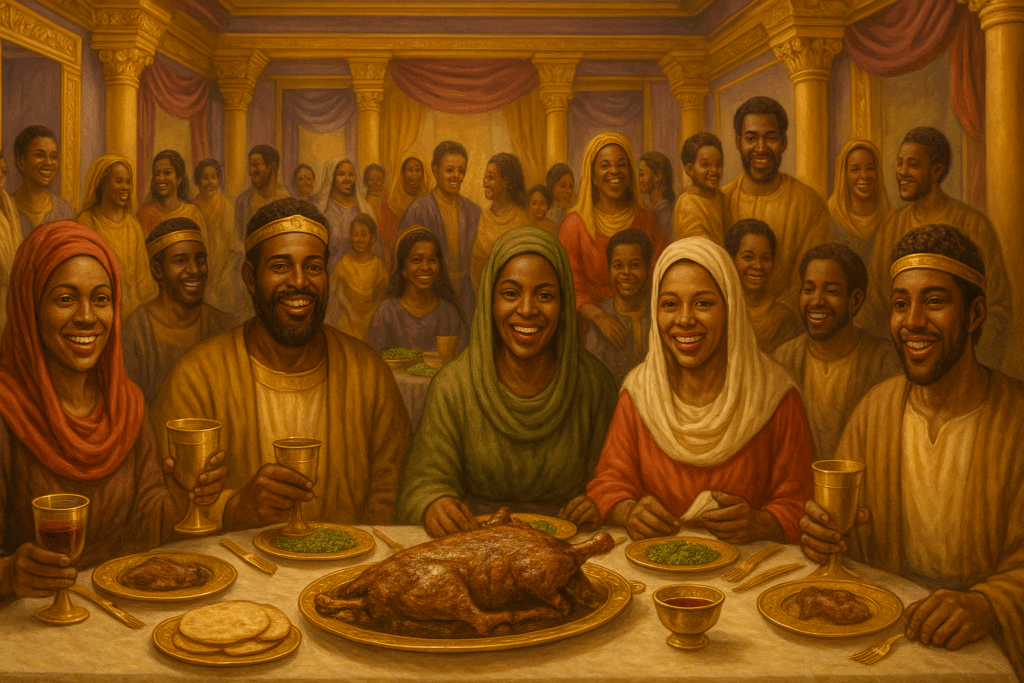
“And the LORD spake unto Moses and Aaron in the land of Egypt, saying, This month shall be unto you the beginning of months: it shall be the first month of the year to you. Speak ye unto all the congregation of Israel, saying, In the tenth day of this month they shall take to them every man a lamb, according to the house of their fathers, a lamb for an house: And if the household be too little for the lamb, let him and his neighbour next unto his house take it according to the number of the souls; every man according to his eating shall make your count for the lamb.
Your lamb shall be without blemish, a male of the first year: ye shall take it out from the sheep, or from the goats: And ye shall keep it up until the fourteenth day of the same month: and the whole assembly of the congregation of Israel shall kill it in the evening.
And they shall take of the blood, and strike it on the two side posts and on the upper door post of the houses, wherein they shall eat it. And they shall eat the flesh in that night, roast with fire, and unleavened bread; and with bitter herbs they shall eat it. Eat not of it raw, nor sodden at all with water, but roast with fire; his head with his legs, and with the purtenance thereof. And ye shall let nothing of it remain until the morning; and that which remaineth of it until the morning ye shall burn with fire.
And thus shall ye eat it; with your loins girded, your shoes on your feet, and your staff in your hand; and ye shall eat it in haste: it is the LORD’S passover. For I will pass through the land of Egypt this night, and will smite all the firstborn in the land of Egypt, both man and beast; and against all the gods of Egypt I will execute judgment: I am the LORD. And the blood shall be to you for a token upon the houses where ye are: and when I see the blood, I will pass over you, and the plague shall not be upon you to destroy you, when I smite the land of Egypt. And this day shall be unto you for a memorial; and ye shall keep it a feast to the LORD throughout your generations; ye shall keep it a feast by an ordinance for ever.” (Exodus 12:1-14)
FEAST OF UNLEAVENED BREAD HOLIDAYS
Feast of Unleavened Bread (7-days of feasting and celebration immediately following Passover when we eat unleavened bread and celebrate the Lord delivering our people from Egyptian captivity). Takes place immediately after Passover.
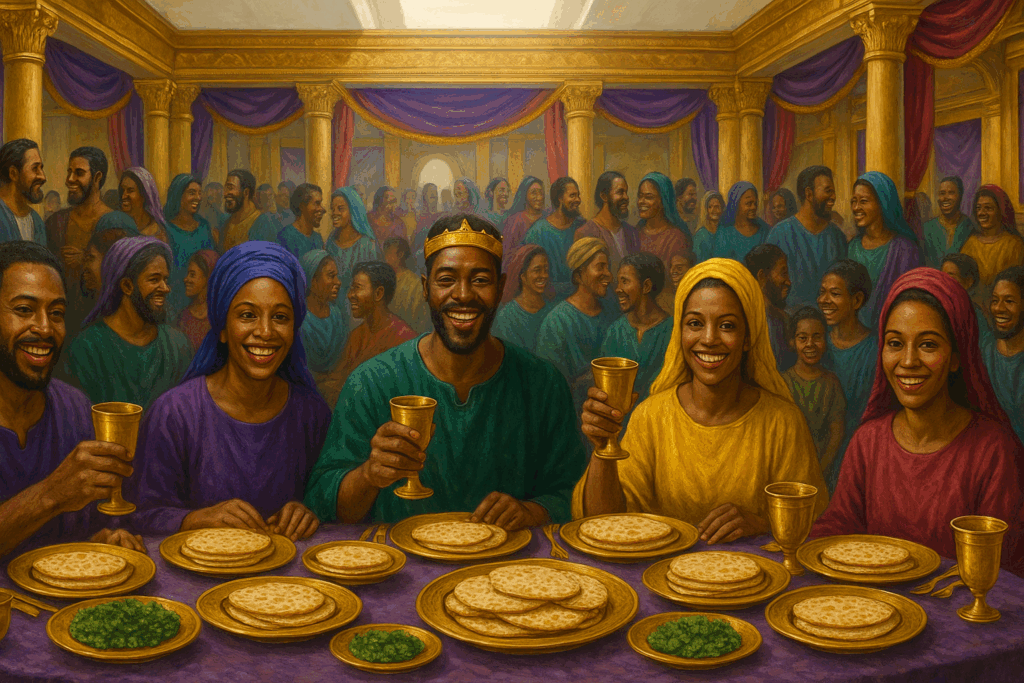
Passover = 1 Day Feast + Feast of Unleavened Bread = 7-Day Feast = 8 Days of Feasting
“Seven days shall ye eat unleavened bread; even the first day ye shall put away leaven out of your houses: for whosoever eateth leavened bread from the first day until the seventh day, that soul shall be cut off from Israel. And in the first day there shall be an holy convocation, and in the seventh day there shall be an holy convocation to you; no manner of work shall be done in them, save that which every man must eat, that only may be done of you.
And ye shall observe the feast of unleavened bread; for in this selfsame day have I brought your armies out of the land of Egypt: therefore shall ye observe this day in your generations by an ordinance for ever. In the first month, on the fourteenth day of the month at even, ye shall eat unleavened bread, until the one and twentieth day of the month at even. Seven days shall there be no leaven found in your houses: for whosoever eateth that which is leavened, even that soul shall be cut off from the congregation of Israel, whether he be a stranger, or born in the land.
Ye shall eat nothing leavened; in all your habitations shall ye eat unleavened bread. Then Moses called for all the elders of Israel, and said unto them, Draw out and take you a lamb according to your families, and kill the passover. And ye shall take a bunch of hyssop, and dip it in the blood that is in the bason, and strike the lintel and the two side posts with the blood that is in the bason; and none of you shall go out at the door of his house until the morning.
For the LORD will pass through to smite the Egyptians; and when he seeth the blood upon the lintel, and on the two side posts, the LORD will pass over the door, and will not suffer the destroyer to come in unto your houses to smite you. And ye shall observe this thing for an ordinance to thee and to thy sons for ever. And it shall come to pass, when ye be come to the land which the LORD will give you, according as he hath promised, that ye shall keep this service.
And it shall come to pass, when your children shall say unto you, What mean ye by this service? That ye shall say, It is the sacrifice of the LORD’S passover, who passed over the houses of the children of Israel in Egypt, when he smote the Egyptians, and delivered our houses. And the people bowed the head and worshipped.” (Exodus 12:15-27)
FEAST OF FIRSTFRUITS HOLIDAYS
Feast of Firstfruits (8-days of feasting and celebration unto the Lord where we give back the first portion of our harvest to God as a sacrifice and honorarium).
The Feast of Firstfruits always occurs during the Feast of Unleavened Bread every year — “the morrow after the sabbath” (it’s the Sunday during the 7-day Feast of Unleavened Bread).
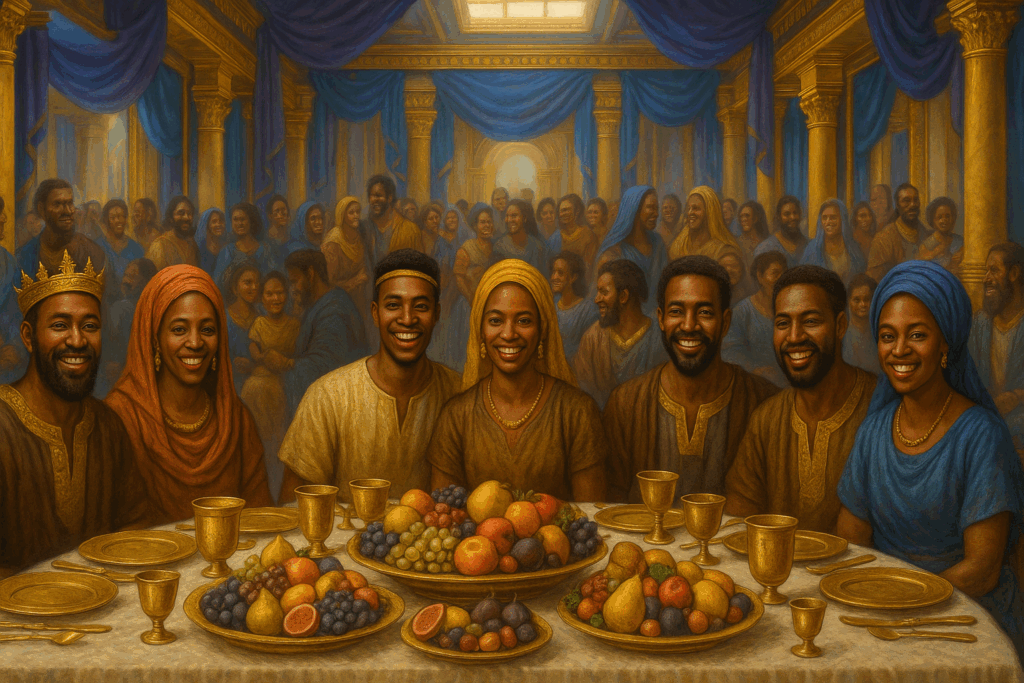
“And the feast of harvest, the firstfruits of thy labours, which thou hast sown in the field: and the feast of ingathering, which is in the end of the year, when thou hast gathered in thy labours out of the field.” (Exodus 23:16)
“The first of the firstfruits of thy land thou shalt bring into the house of the LORD thy God.” (Exodus 23:19)
PENTECOST HIGH HOLY DAY
Pentecost (1-day feast when we celebrate the wheat harvest and give free will offerings to the Most High God).
“And thou shalt observe the feast of weeks, of the firstfruits of wheat harvest, and the feast of ingathering at the year’s end.” (Exodus 34:22)
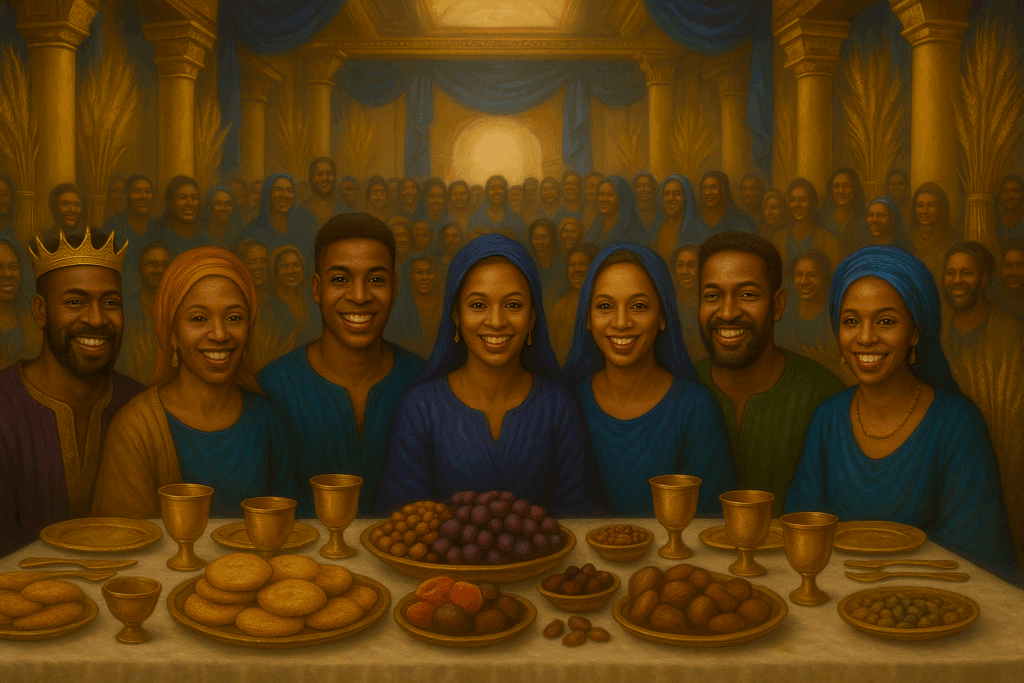
“And ye shall count unto you from the morrow after the sabbath, from the day that ye brought the sheaf of the wave offering; seven sabbaths shall be complete: Even unto the morrow after the seventh sabbath shall ye number fifty days; and ye shall offer a new meat offering unto the LORD. Ye shall bring out of your habitations two wave loaves of two tenth deals: they shall be of fine flour; they shall be baken with leaven; they are the firstfruits unto the LORD.
And ye shall offer with the bread seven lambs without blemish of the first year, and one young bullock, and two rams: they shall be for a burnt offering unto the LORD, with their meat offering, and their drink offerings, even an offering made by fire, of sweet savour unto the LORD.
Then ye shall sacrifice one kid of the goats for a sin offering, and two lambs of the first year for a sacrifice of peace offerings.
And the priest shall wave them with the bread of the firstfruits for a wave offering before the LORD, with the two lambs: they shall be holy to the LORD for the priest.
And ye shall proclaim on the selfsame day, that it may be an holy convocation unto you: ye shall do no servile work therein: it shall be a statute for ever in all your dwellings throughout your generations.” (Leviticus 23:15-21)
The Feast of Pentecost is also known as:
“Feast of Harvest” or “Day of Firstfruits of Wheat Harvest”
“Feast of Weeks” (Hebrew: Shavuot)
Pentecost takes place after the Feast of Firstfruits. The count starts from the Sunday during the Feast of Unleavened Bread/Feast of First Fruits (the day after the weekly Sabbath, which is not a fixed date).
So, Pentecost is the 50th day, from the Feast of First Fruits, which always lands on a Sunday. To figure out what day Pentecost is on, simply count 7 Sabbaths (49 days) from that Sunday.
“Seven weeks shalt thou number unto thee: begin to number the seven weeks from such time as thou beginnest to put the sickle to the corn. And thou shalt keep the feast of weeks unto the LORD thy God with a tribute of a freewill offering of thine hand, which thou shalt give unto the LORD thy God, according as the LORD thy God hath blessed thee:” (Deuteronomy 16:9–10)
PURIM HIGH HOLY DAYS
Purim (2-day feast when we celebrate deliverance of God’s people during Israelite Queen Esther’s reign in Persia — who was put in power to save our people — the Hebrews — during times of persecution and threats of genocide).
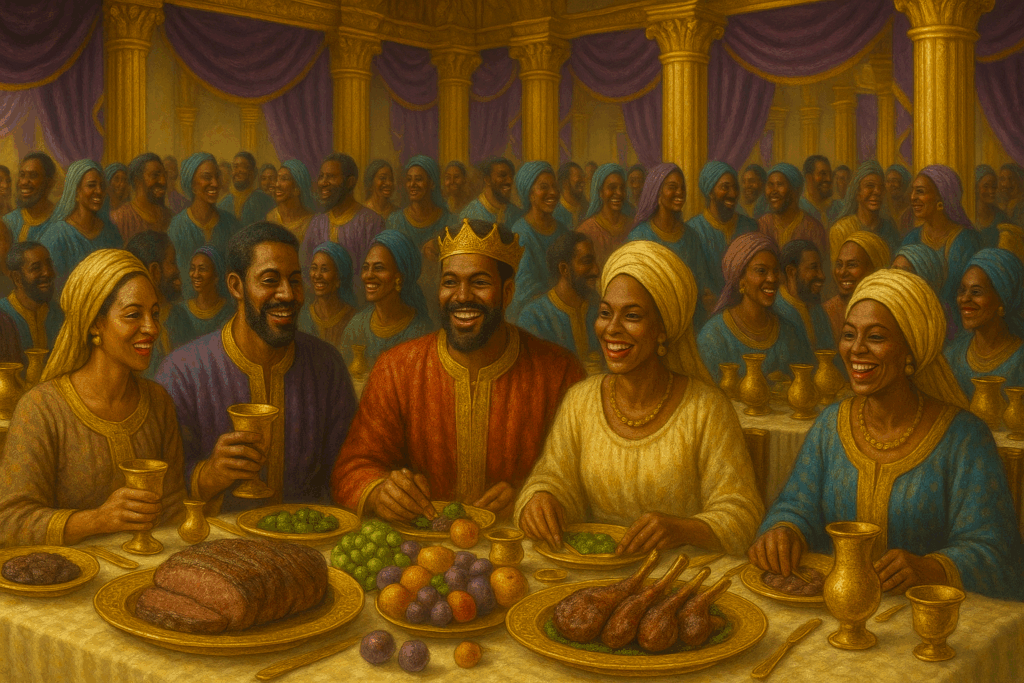
“And Mordecai wrote these things, and sent letters unto all the Jews that were in all the provinces of the king Ahasuerus, both nigh and far, To stablish this among them, that they should keep the fourteenth day of the month Adar, and the fifteenth day of the same, yearly, As the days wherein the Jews rested from their enemies, and the month which was turned unto them from sorrow to joy, and from mourning into a good day: that they should make them days of feasting and joy, and of sending portions one to another, and gifts to the poor.
And the Jews undertook to do as they had begun, and as Mordecai had written unto them; Because Haman the son of Hammedatha, the Agagite, the enemy of all the Jews, had devised against the Jews to destroy them, and had cast Pur, that is, the lot, to consume them, and to destroy them; But when Esther came before the king, he commanded by letters that his wicked device, which he devised against the Jews, should return upon his own head, and that he and his sons should be hanged on the gallows.
Wherefore they called these days Purim after the name of Pur. Therefore for all the words of this letter, and of that which they had seen concerning this matter, and which had come unto them, The Jews ordained, and took upon them, and upon their seed, and upon all such as joined themselves unto them, so as it should not fail, that they would keep these two days according to their writing, and according to their appointed time every year; And that these days should be remembered and kept throughout every generation, every family, every province, and every city; and that these days of Purim should not fail from among the Jews, nor the memorial of them perish from their seed.” (Esther 9:20-28)
DESTRUCTION OF NICANOR HOLIDAY
Destruction of Nicanor (1-day feast where we celebrate our victory over Syrian general Nicanor who showed dominance and religious persecution over our Israelite ancestors — the Jews.
Yet, in a dramatic turn of events, Judas Maccabeus defeats and kills Nicanor in battle on the 13th day of the month Adar, just before the feast of Purim).
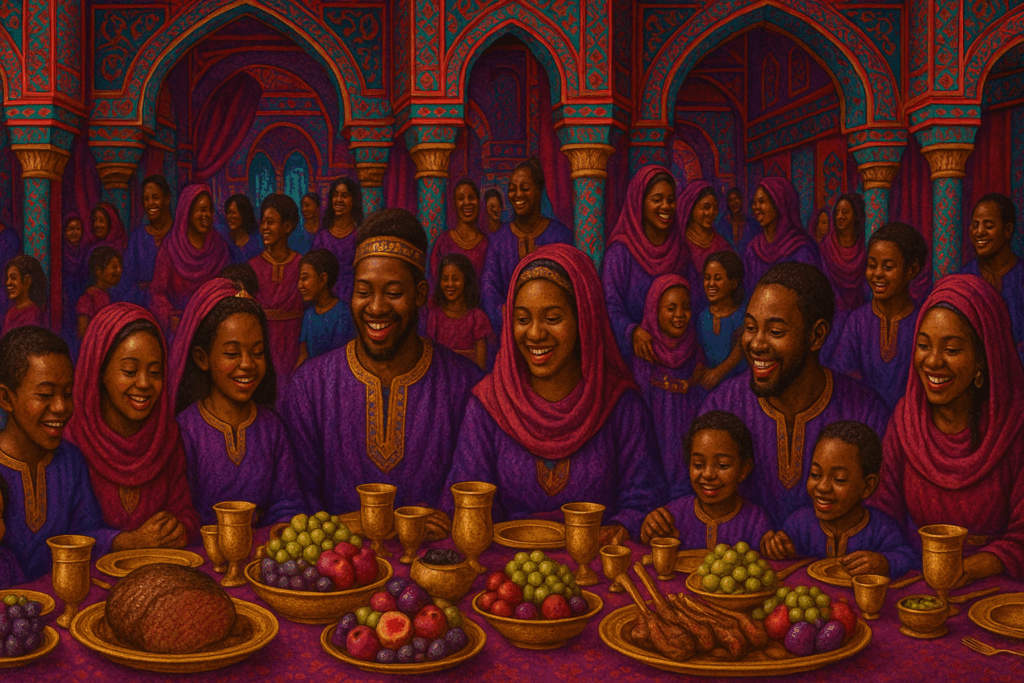
“And they all decreed by public vote never to let this day go unobserved, but to celebrate the thirteenth day of the twelfth month — Adar — as the day of victory, shortly before the day of Mordecai.” (2 Maccabees 15:36)
DAY OF SIMON HOLIDAY
Day of Simon (1-day feast when we celebrate winning our sovereignty during the Maccabean era when we Hebrews ruled).
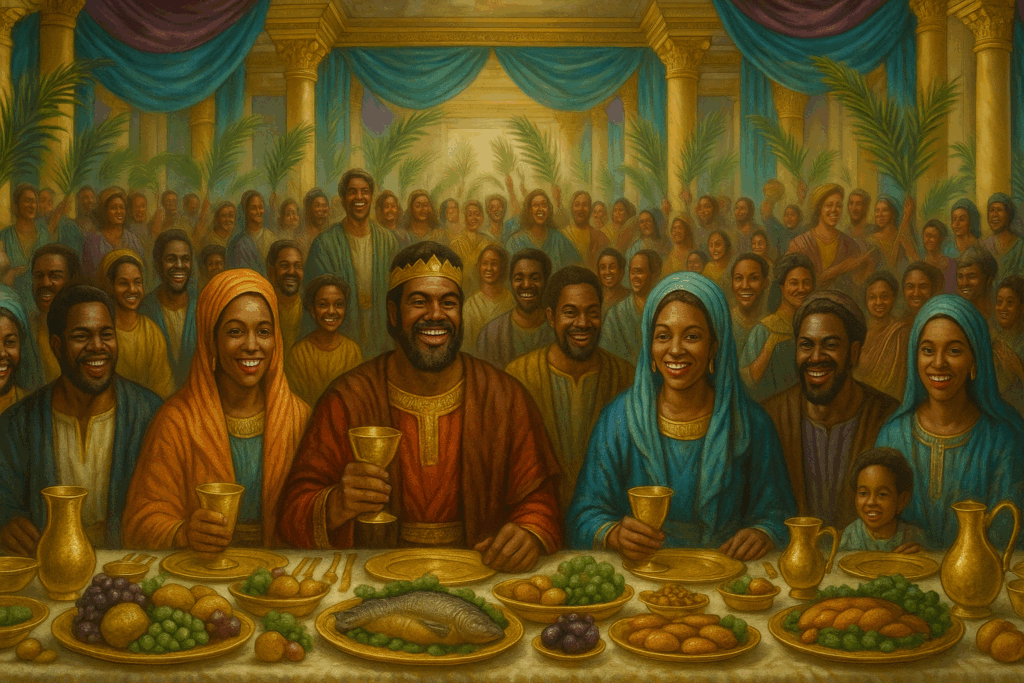
It commemorates a key victory in Hebrew history during the Maccabean period, when Simon the Maccabee—the brother of Judas Maccabeus—secured full independence for the Israelite people from foreign rule.
“On the twenty-third day of the second month, in the one hundred seventy-first year, the Jews entered it with praise and palm branches, with harps and cymbals and stringed instruments, and with hymns and songs, because a great enemy had been crushed and removed from Israel. And Simon decreed that this day should be celebrated every year with rejoicing.” (1 Maccabees 13:51–52)
FEAST OF TABERNACLES HOLIDAYS
Feast of Tabernacles (8-day yearly feast where we dwell in tents while celebrating the goodness of God and remembering how he delivered us from Egyptian captivity).
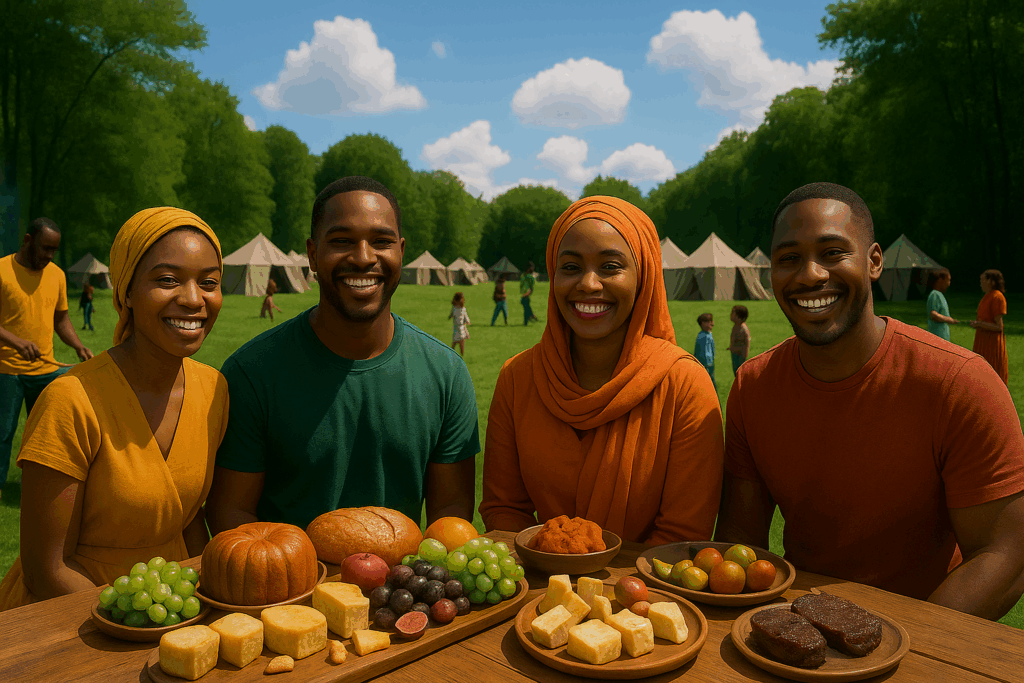
“Also in the fifteenth day of the seventh month, when ye have gathered in the fruit of the land, ye shall keep a feast unto the LORD seven days: on the first day shall be a sabbath, and on the eighth day shall be a sabbath. And ye shall take you on the first day the boughs of goodly trees, branches of palm trees, and the boughs of thick trees, and willows of the brook; and ye shall rejoice before the LORD your God seven days.
And ye shall keep it a feast unto the LORD seven days in the year. It shall be a statute for ever in your generations: ye shall celebrate it in the seventh month.
Ye shall dwell in booths seven days; all that are Israelites born shall dwell in booths: That your generations may know that I made the children of Israel to dwell in booths, when I brought them out of the land of Egypt: I am the LORD your God. And Moses declared unto the children of Israel the feasts of the LORD.” (Leviticus 23:39-44)
MEMORIAL BLOWING OF TRUMPETS HOLIDAYS
Memorial Blowing of Trumpets (1-day feast where shofar trumpets are blown in celebration unto our God Almighty). The trumpets signify the presence of The Most High God of Israel in our lives.
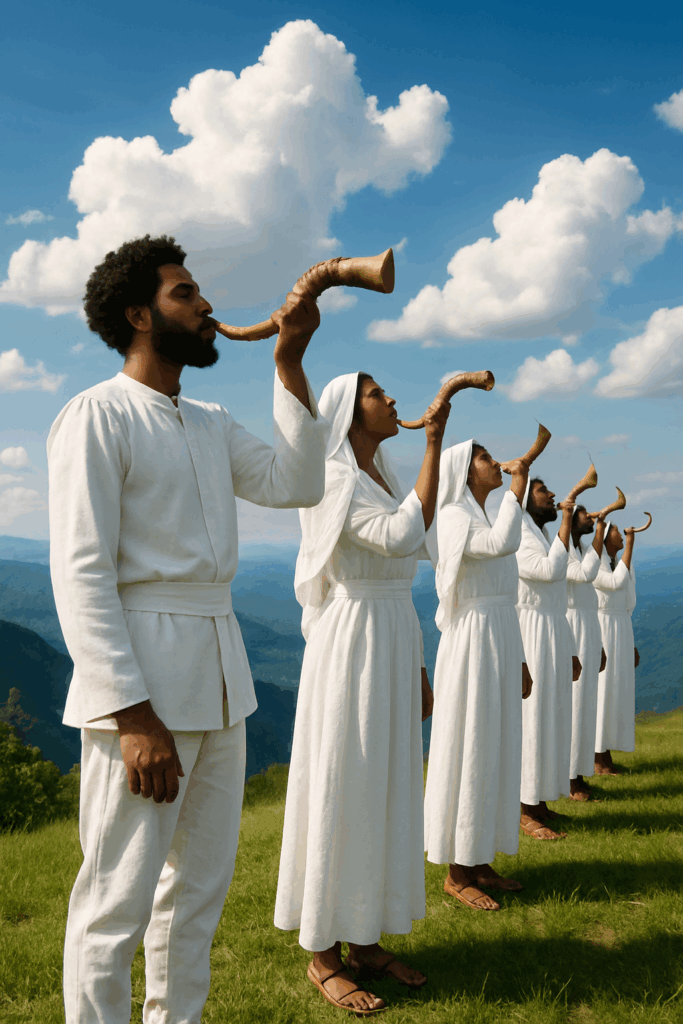
“And the LORD spake unto Moses, saying, Speak unto the children of Israel, saying, In the seventh month, in the first day of the month, shall ye have a sabbath, a memorial of blowing of trumpets, an holy convocation. Ye shall do no servile work therein: but ye shall offer an offering made by fire unto the LORD. And the LORD spake unto Moses, saying, Also on the tenth day of this seventh month there shall be a day of atonement: it shall be an holy convocation unto you; and ye shall afflict your souls, and offer an offering made by fire unto the LORD.” (Leviticus 23:23–27)
DAY OF ATONEMENT HIGH HOLY DAY
Day of Atonement (24-hour mandatory dry fast that takes place each year as a clean slate to wipe away our sins for that year. Every Hebrew is required to fast on this day).

“And the LORD spake unto Moses, saying, Also on the tenth day of this seventh month there shall be a day of atonement: it shall be an holy convocation unto you; and ye shall afflict your souls, and offer an offering made by fire unto the LORD.
And ye shall do no work in that same day: for it is a day of atonement, to make an atonement for you before the LORD your God. For whatsoever soul it be that shall not be afflicted in that same day, he shall be cut off from among his people.
And whatsoever soul it be that doeth any work in that same day, the same soul will I destroy from among his people. Ye shall do no manner of work: it shall be a statute for ever throughout your generations in all your dwellings.” (Leviticus 23:26-31)
FEAST OF DEDICATION HIGH HOLY DAY
Feast of Dedication “Hanukkah” (8-day feast where we celebrate the miracle of oil in the holy temple’s menorah which God miraculously allowed to last for 8 days — this was the amount of time needed to prepare and consecrate new pure oil for temple purposes). It’s also known as the “Feast of the Maccabees” or the “Festival of Lights.”
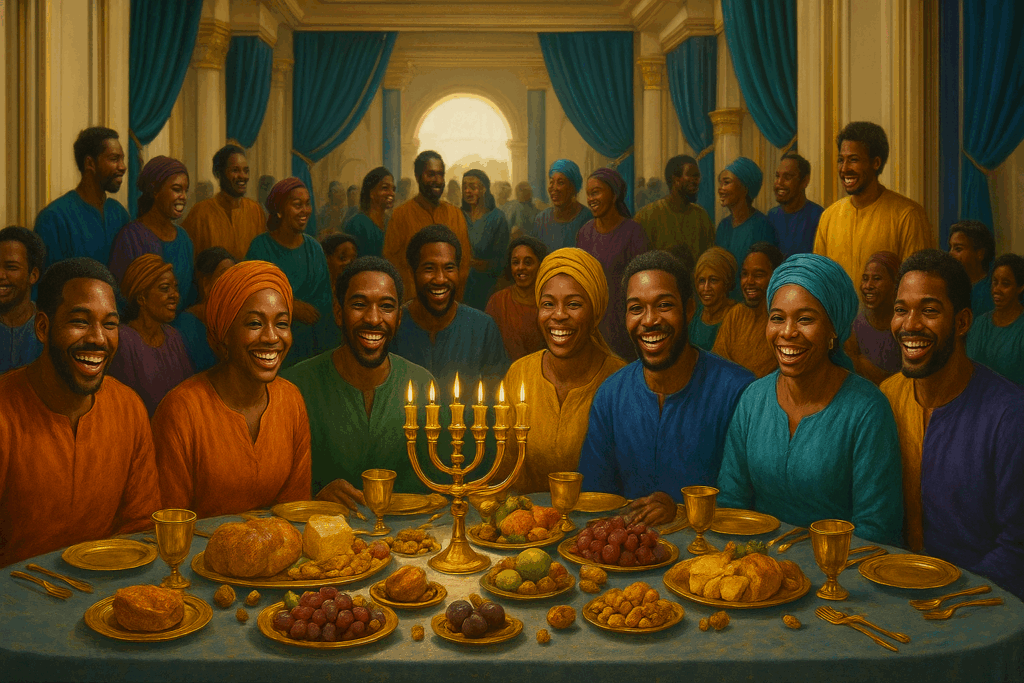
“And it was at Jerusalem the feast of the dedication, and it was winter.” (John 10:22)
Key Things to Remember
For those who do not have crops to harvest, you can still participate in the offerings by honoring God’s provision symbolically (like by giving alms and other money offerings)
- The words, “High Holy Day” and “Holidays” are used interchangably and have the same meaning as a day we are commanded to dedicate to and celebrate the Lord.
- Keeping the Feast of Firstfruits Holidays is a commandment from God to honor Him with the first portion of the harvest.
- The Feast of Firstfruits occurs during the week of Unleavened Bread, the day after the Sabbath following Passover.
- In the Bible, a solemn assembly is a sacred gathering or holy convocation commanded by God, during which the people of Israel were to cease from all regular work and gather for worship, offerings, and reflection, usually marking the closing day of a festival.
- Though temple offerings ceased in the Diaspora, the spirit of the feast—thanksgiving and dedication to God—has continued.
- Scriptures like Numbers 28, Leviticus 23, Nehemiah 10, and Exodus 23 & 34 preserve the holiday command and its spiritual importance across generations.
Sabbath Observance During High Holy Days
For both the Feast of Unleavened Bread and the Feast of Tabernacles, the first and the last day of the feast is to be observed as a Sabbath. Two days are treated as Sabbaths with the feast days occurring in between.
So How Many Days to Feast?
- Day 1 = Sabbath (Holy Convocation, no work)
- Days 2–7 = Regular feast days, not Sabbaths
- Day 8 = Sabbath (Holy Convocation, solemn assembly)
- Total: 8 days of observance
In the Bible, a solemn assembly is a sacred gathering or holy convocation commanded by God, during which the people of Israel were to cease from all regular work and gather for worship, offerings, and reflection, usually marking the closing day of a festival.
What Happens on a Solemn Assembly (According to Scripture)?
- No work is done (like a Sabbath)
- A holy convocation is held — the people gather before the Lord
- Offerings are made to God
- It often marks the end of a feast
- It is a set-apart day with a spirit of seriousness, worship and reflection
Passover Putting it All Together
- Passover (1 Day) + Feast of Unleavened Bread (7 Days) = 8 Day Holiday
- The first day is observed as a Sabbath (Passover – Day 1) and the last day is also observed as a Sabbath too (Feast of Unleavened Bread Day 8).
- Passover = 14th day of the 1st month (Nisan)
- Feast of Unleavened Bread = starts on the 15th and lasts 7 days
- Feast of Firstfruits = “the morrow after the sabbath” during this week (Leviticus 23:11)
So, the Feast of Firstfruits occurs during the week of Unleavened Bread, and it’s celebrated the day after the Sabbath.
*Disclaimer: Prayerfully and scripturally every effort has been made to properly document and instruct our nation on how to accurately follow the biblical holidays and commandments of the Most High God. However, we are in the continual process of re-learning our forgotten righteous customs and traditions. So, please bear with us. We will promptly correct any discrepancies that we may discover in this journey. And we also encourage you to thoroughly study scripture and seek the Lord’s guidance as well. Shalom and be blessed.*